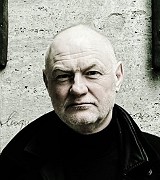Authors
James Rodgers1; Dina Fainberg1; 1 City, University of London, UKDiscussion
The murder in 1994 of the journalist Dmitry Kholodov was a sign of the violent lawlessness that plagued Russian society in the decade after the collapse of communism. The death provoked widespread public sympathy—and shocked a journalistic community that had grown increasingly used to freedom since the policy of glasnost’ in the late Soviet period.
Kholodov worked for Moskovsky Komsomolets. In the 1990s, it served up a mixture of scandal, crime, and hard-hitting investigations. In 1994, working on a story of corruption in the Russian military, Kholodov was given a tip-off to go to collect a briefcase from a Moscow railway station. When he opened it, it exploded, killing him.
This paper will situate the murder in its wider historical and political contexts. When he spoke during a visit to Moscow the following year, the U.S. president, Bill Clinton, referred to the murder and exhorted his student audience not to allow ‘one of the essential freedoms of democracy, the freedom of the press’ to be stolen from them by ‘assassins.’ Kholodov was working in an era when journalism took on the responsibility of a long Russian tradition of dissent—an era when it seemed that investigative journalism might come to be accepted as part of a functioning Russian democracy.
The paper will conclude by arguing that Kholodov’s death was a milestone in the history of violence against journalists in Russia. This was a time of greater freedom of expression. It was also one that set dangerous and deadly precedents. Kholodov’s murder was followed by others, including that of Anna Politkovskaya in 2006, and the driving into exile of opposition journalists fearful for their safety.
About the author
James Rodgers is Reader in International Journalism at City St George’s, University of London. He is the author of 'Assignment Moscow: Reporting on Russia from Lenin to Putin' (Bloomsbury Academic, 2020 and 2023).
His next book, due to be published by Yale University Press in 2025, will be on Russia’s relations with the West from the 1990s until the present decade.


